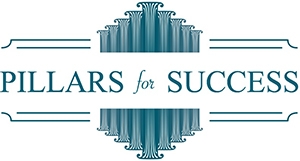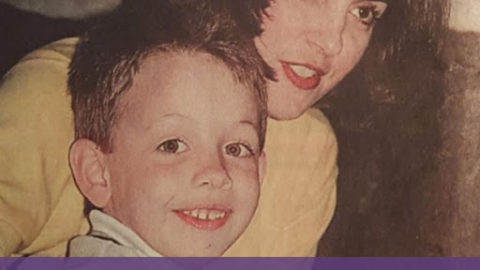Everyone wants to be able to parent more effectively.
Every parent is a “survivor.” No human being travels life’s journey without experiencing the effects of their early relationships. As you all know, some of those effects are positive and some of those effects are not-so-positive. The parent-child relationship is complex and has so many variables that affect its course. Those of us who have had mostly positive early experiences and relationships with our caregivers during our “growing up” years can bring a treasure chest of warmth, patience, and caring to our relationships with those children. Those of us who are naturally more “mild mannered,” “calmer,” and “more patient” also have less stress as caregivers.
Remember, too, that those of us who do not remember many positive experiences with our caregivers can still dedicate ourselves to being the best parents possible and giving our children the patience and nurturing we felt were missing in our own lives. The difference for any single person is actually having lived and experienced the “positive” rather than searching for how to make that happen. Either way, parents who are willing to focus on the goal of being a nurturing/positive parent will find it to be absolutely possible to achieve.
The similarities in both journeys include a strong desire to parent more effectively and in fact, the best parenting experience possible for our children. We know that for some people, “parenting” seems as natural as “breathing”—they seem to have infinite patience and insight to help them understand their children’s behavior and respond to their children’s needs with warmth, fair boundaries, caring, and sharing. For others, “parenting” includes significant challenges and sometimes results in regrets we have regarding how we responded to our children. For others still, our child’s “nature” and “temperament” seems to clash with our own… perhaps we are both “high-strung” and impatient.
The Ability to Parent More Effectively Often Starts with the Process of Healing
Recognizing when your parenting skills contribute to your children’s growth and when they may adversely affect your children is a celebration of your own growth and insight. Some of these challenges are the result of how you were parented and the “baggage” you bring to your own parenting as a result. Healing yourself can be one of the first and most important steps you can take to improve your parenting skills and your relationships with your children.
For some of us the process of healing may include seeking professional help from a counselor or therapist for individual or family therapy. For others, the process of healing includes learning the rules and tools and skills of parenting more effectively via a parenting class so that we can begin to learn the techniques that have positive outcomes and help us feel better about ourselves and our relationships with our children because we are learning to parent more effectively than we were parented.
In either case don’t judge yourselves too harshly and don’t feel the need to “repair yourself” because what may be hidden within that thought is the idea that you are “broken” in some way, which can only add to the burden you carry and also interfere with growth.
Understanding child development and learning parenting skills requires more than random luck. While some of us often seem to intuitively know what to say and do when parenting challenges arise, that is not the case for most of us nor is it the case for any of us all of the time.
We encourage you to explore different parenting programs if you feel that this would provide you with the support that could potentially ease your parenting journey. For the purposes of this article, let’s take a look at some of the parenting tips contained in the Pillars for Success program. The skills and insights of this program includes the 9 Pillars, and each Pillar discusses a major parenting insight that results in positive problem solving and successful outcomes. Wanting to parent positively is a noble goal. Knowing what to say and do in order to achieve that goal is a learned skill.
Pillar #1: Children Think Differently From Adults
Parents need to understand that thinking like an adult and learning to consider the needs and wants of other people in our lives is a perspective learned while growing up. Often our children appear to be very self-centered and selfish when, in fact, they are just thinking and behaving like children. The key to success learned from this Pillar helps express our expectations in a way that the child will clearly see what he will get if he chooses to cooperate.
Why?
Because a child’s developmental view of the world is based on the simple question, “What’s in it for me?” (which we often refer to as the “WIIFM rule”).
Try telling your child that he has to clean his room because it’s the “right thing to do” and see how well he cooperates.
Next, try telling your child the reward he will receive for cleaning his room. This can be something as simple as watching his favorite TV show, playing his favorite game with you, enjoying a snack, or anything else that appeals to your child. See how he responds.
Remember that all of us want to experience tangible rewards for our work. For an adult, that may mean a paycheck or a promotion at work. Would you go to your job every day for nothing in return? Likewise, for children, motivation includes by positive rewards, positive outcomes, and positive privileges.
Check out the rest of the Pillars for Success website to learn more about this Pillar and how understanding and applying the concepts can affect your parenting and the behavior of your child.
Pillar #7: Win-Win Outcomes Are Possible
Not only are we dealing with our own personalities and temperaments but we are also dealing with the unique personalities and temperaments of the children in our lives. We are further dealing with the frustrations and celebrations in our own lives at any given time along with those in the lives of our children—all of which affect their behavior, our behavior, and our responses. With Pillar 7, you’ll learn how important it is to clearly deliver your messages/requests to your child and how much easier that happens when you “speak in behavioral terms.”
As an example, instead of saying “Clean your room,” explain in behavioral terms what you are expecting. That may sound like, “Please make your bed, put the clothes you wore yesterday in the clothes hamper, and put your toys in the toy box.” Also, inform him of what good thing will happen when he follows directions, such as, “And when you are done, I will make you a cup of warm hot chocolate to drink while you watch cartoons.”
In addition, offer him choices. “How many mini-marshmallows do you want to put in the hot chocolate? Five marshmallows or ten marshmallows?”
Remember, you are not bribing your child but are rather showing him how he will benefit from following your directions. If he argues with you and says he doesn’t want to do it, then ask him if he will be ready to do the task before his favorite cartoon comes on the TV so he can finish in time to watch it OR if he wants to wait and skip watching that cartoon for today.
If he continues to argue then try reversing the early stages of a power struggle with offering to help: “How ‘bout if I help you make your bed and then you put your toys in the toy box and take your clothes to the hamper?”
Remember that your goal is to help your child overcome the pattern of refusals and begin a new pattern of cooperation. Also remember that big changes begin with little steps and lots of support.
You Can Parent More Effectively
Parenting is all about opportunities for growth, setting boundaries when needed, and “coming alongside” your child as he learns how to overcome frustration and satisfy his own developmental needs in positive ways.
Parenting is a journey, not a single step, and every parent faces challenges along the way to find solutions to seemingly unsolvable issues. Every one of those solutions that may involve compromise and positive results is a victory and an opportunity for growth. In fact, the journey is rich with possibilities for both personal growth and growth in the parent-child relationship.
However, major challenges often arise when our child’s current struggles clash with our “unfinished business” from our own childhood. It is times like these when an organized approach to parenting can be extremely helpful as adults learn the rules and tools of positive parenting that they may not have experienced as a child. Often this results in a process of “healing” that is the result of finding answers to what was experienced as seemingly unsolvable behavior issues and challenges. Watching your child experience positive growth and feeling your relationships with that child grow are two of the richest rewards a parent can enjoy and are rich with opportunities for personal healing.
A Word About Therapy
Seeking out professional help may be of great benefit. It helps us analyze who we are and the relationships and experiences we have had throughout our lives. However, it may be a focus that begins a long and tiring journey that some of us never intended to take. So make your decision to seek professional counseling help clearly and logically, knowing that it is a journey that can have positive impacts in various areas of your life and relationships, including your role as a parent. Be aware, however, that this journey involves more focused delving into past experiences and feelings than a positive parenting course will require. Either way, you will no doubt benefit. The choice depends on the areas of your life in which you are seeking to find a more satisfying balance.













